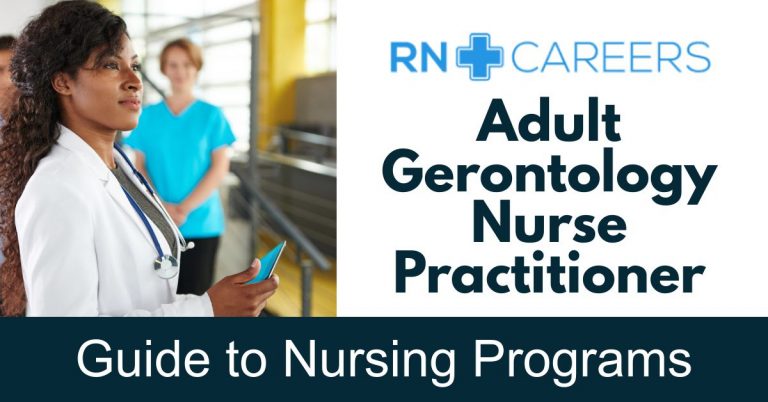Nurse Administrator Career and Education Overview
- What You Will Do: Develop and lead healthcare work environments, supervise clinical staff, analyze budgets, provide consulting services, and more
- Where Will You Work: Hospitals, larger healthcare organizations, nursing homes, private practices, correctional facilities, community health centers
- Employment Projections: By 2026 medical and health service manager positions are projected to grow by 21 percent.
- How Much Will I Earn: Depending on your specific Nurse Administrator role you will earn between $58,000 to $178,000.
- How Long Does It Take to Become a Nurse Administrator: Becoming a Nurse Administrator requires a bachelor’s degree, and RN license, and a master’s degree which will take about 2 years. You will also likely need prior RN experience in order to be hired.
- Requirements to Become One: An RN license and a bachelor’s degree as well as a master’s in nursing or a master’s in business administration (MBA). You can also obtain and maintain certification as a Nurse Executive or Nurse Manager.
Six Steps to Become a Nurse Administrator
- Earn Your RN – Earning your RN from a CCNE or ACEN accredited university is crucial. This will make your credentials more likely to be accepted by your future master’s degree in nursing (MSN) program. If you are pursuing a BSN, our guide can help you through the process.
- Pass The NCLEX-RN Exam – The NCLEX-RN exam is the national exam that you must take to become and RN. We have an NCLEX-RN exam guide and practice tests to help you study.
- Earn Your MSN – Nurse Administrator programs frequently have courses in statistics, management, healthcare delivery, research, ethics, and more.
- Complete Practice Hours – Most Nurse Administrator programs will require that you complete a certain number of practice hours in your administrative field during your education. These will vary based on the program.
- Become Certified – Become a Certified Nurse Manager and Leader or become Certified in Executive Nursing Practice through the American Organization of Nurse Executives (AONE). You can also get certified through the American Nurses Credentialing Center (ANCC) as a Nurse Executive, Advanced.
- Maintain Active Certification – If certified through AONE you must complete 45 continuing education (CE) credits or re-take the certifying exam every 3 years and pay a fee. Through the ANCC you must re-apply, obtain 75 CE credits and pay a fee to re-certify every 5 years.
What is a Nurse Administrator?
Defining a what a Nurse Administrator can be complicated. The term Nurse Administrator can be a specific nursing role or be a broader term used to encompass Nurse Managers, Nurse Executives, directors, and other administrative positions within the nursing field. You will likely be removed from direct patient care when you become a Nurse Administrator, but clinical knowledge is required to effectively work in healthcare administration.
There are master’s education programs that are specifically for nursing administration in general, as well as programs specifically to become a Nurse Executive. For example, Augusta University offers specifically a Nurse Executive program while South University offers a master’s in nursing with a concentration in nursing administration. Nurse Administrators in any role are leaders in the healthcare environment. As a Nurse Administrator you will be prepared to help optimize healthcare while reducing costs. You will be able to be a part of making important decisions and developing policy that can affect the entire healthcare institution where you work.
You may function as a manager of a healthcare team and eventually may have the opportunity to climb the administrative ladder and work your way into positions such as Chief Nursing Officer (CNO). As a Nurse Administrator you will play an active role in changing and enhancing healthcare and the future for other nursing professions. You may be involved in improving patient safety and outcomes, managing professional relationships and finances, as well as making decisions about information management and technology. Here are some examples of Nurse Administrator titles that you could earn after getting your master’s:
- Nurse Manager: As a Nurse Manager you may coordinate patient care among staff members and work to improve patient outcomes and satisfaction. You may also supervise nursing staff. Your administrative roles may involve staff scheduling, budget planning, organizing continuing education and staff training.
- Nurse Director: As a Nurse Director you will oversee Nurse Managers. You will also play a larger part in leading the healthcare team and whole floor or unit. Much of your work will involve collaborating with other staff members to plan budgets, ensure patient safety, and enhance the workplace environment.
- Chief Nursing Officer: CNOs are at the top of the administrative ladder. As a CNO you will work at the corporate level to enhance the nursing profession and be a voice for the entire nursing staff. You will play an active role in creating new services for both patients and clinical staff as well as making important decisions for the overall healthcare organization.
Related Careers
How Do I Become a Nurse Administrator?
To become a Nurse Administrator at the advanced level you will need both a bachelor’s and master’s degree as well as an RN license. While getting a master’s in nursing is the standard, many employers will also accept MBA degrees as well. Employers will likely want you to have some sort of clinical background, but nursing experience is not necessary for all Nurse Administrator programs.
- BSN to MSN: If you have your BSN and are already an RN you can enter a traditional master’s in nursing program to become a Nurse Administrator in 2 years.
- Bachelors to MSN: Due to the need for more nurses and advanced healthcare administration there are programs designed for people who have a background in something other than nursing. If you have your bachelor’s in a non-nursing field, you can do a Direct Entry program that is designed to prepare you as both a nurse and Nurse Administrator. These programs typically take between 2 and 3 years. You will first need to have pre-requisite courses in biology, anatomy and physiology, chemistry, and probably a few more depending on the university.
- BSN to DNP: You can get your Doctorate in nursing practice (DNP) in around 4 years if you have your BSN.
- MSN to DNP: In 2 to 3 years you can get your DNP if you already have your master’s in nursing.
Certification and Licensure: Becoming certified is a way to show employers that you are an expert in nursing administration. There are only two organizations that offer certification for Nurse Administrators. AONE and the ANCC offer Nurse Executive and Nurse Manager certifications at the advanced level (requiring a master’s degree).
To maintain your certification through AONE, you must re-certify every 3 years by filling out the application, paying the $200 re-certification fee, and completing 45 hours of CE credits, or by re-taking the exam. To maintain your certification through the ANCC every 5 years you must complete 75 CE credits, submit a renewal application, and pay the $250 ($350 for non-ANCC members) renewal fee.
Aside from maintaining your RN licensure you are not required to gain additional licensure as a Nurse Administrator.
Where Do Nurse Administrators Typically Work?
As a Nurse Administrator you can work in different healthcare environments such as hospitals, clinics, multilevel healthcare organizations, outpatient care centers, private practices, nursing homes and more. You will be able to find employment opportunities in any locations where there is a need for healthcare administrative work or where nurses are employed. While you may interact with patients you will likely be removed from providing direct patient care.
Nurse Administrator Salary Expectations
You will have the potential to earn a very competitive salary that can increase as you gain experience and move up to higher management positions. According to the Bureau of Labor Statistics medical and health services managers make a median of $98,350 annually. As with any profession your experience level, specific job title, and state/city where you work will influence your salary. Overall the salary for nurse administrators can range from around $58,000 to $178,000 annually. Hospital settings tend to pay the most and nursing and residential care facilities pay the least. Depending on your role and where you work you may be working more than 40 hours a week with some weekend/evening duties. Nurse Administration positions are almost always salaried, so hourly pay is unlikely.
Online Nurse Administrator Programs
Online Nurse Administrator programs are making this career pathway more accessible to people who already have busy lives. These programs allow you to complete all or some of the course requirements online which give you the flexibility to keep up with other life commitments such as work and family. These programs can also help you organize your practice hours in a suitable location that is convenient for you.
What is a Typical Nurse Administrator Curriculum?
Your curriculum will depend on what university you go to and what specific program you enroll in. However, in general you can expect to take courses similar to what is offered at South University’s Nurse Administrator program:
- Role of the Advanced Practice Nurse
- Nursing Research Methods
- Managing Complex Healthcare Systems
- Advanced Pharmacology
- Advanced Physiology/Pathophysiology
- Quality Outcomes and Financial Management in Healthcare Organizations
- Health Policy and Health Promotion in Advanced Nursing Practice
Top Nurse Administrator Programs in the United States
According to the U.S. News and World Report the following schools offer the best Nurse Administrator programs in 2018:
- University of Pennsylvania
- University of Alabama-Birmingham
- University of Iowa
- John Hopkin’s University
- Rush University
- University of Illinois-Chicago
Nurse Administrator Resources
Denisco, S. M., Barker, A. M., (2016). Advanced practice nursing: Essential knowledge for the profession. Burlington, MA: Jones and Barlett Learning.
- About the Author
- Latest Posts
Lauren is a Registered Nurse and Women’s Health Nurse Practitioner who works in an OB/GYN clinic in the Boston area. She completed a Direct Entry MSN program at Boston College in May 2017 after obtaining a BS in Forensic Science and a BS in Biology from the University of New Haven, so she has special awareness of how confusing the many paths to nursing can be! She is passionate about enhancing and clarifying the nursing role globally as well as combatting human trafficking from a public health standpoint. In her free time Lauren enjoys writing and traveling.







